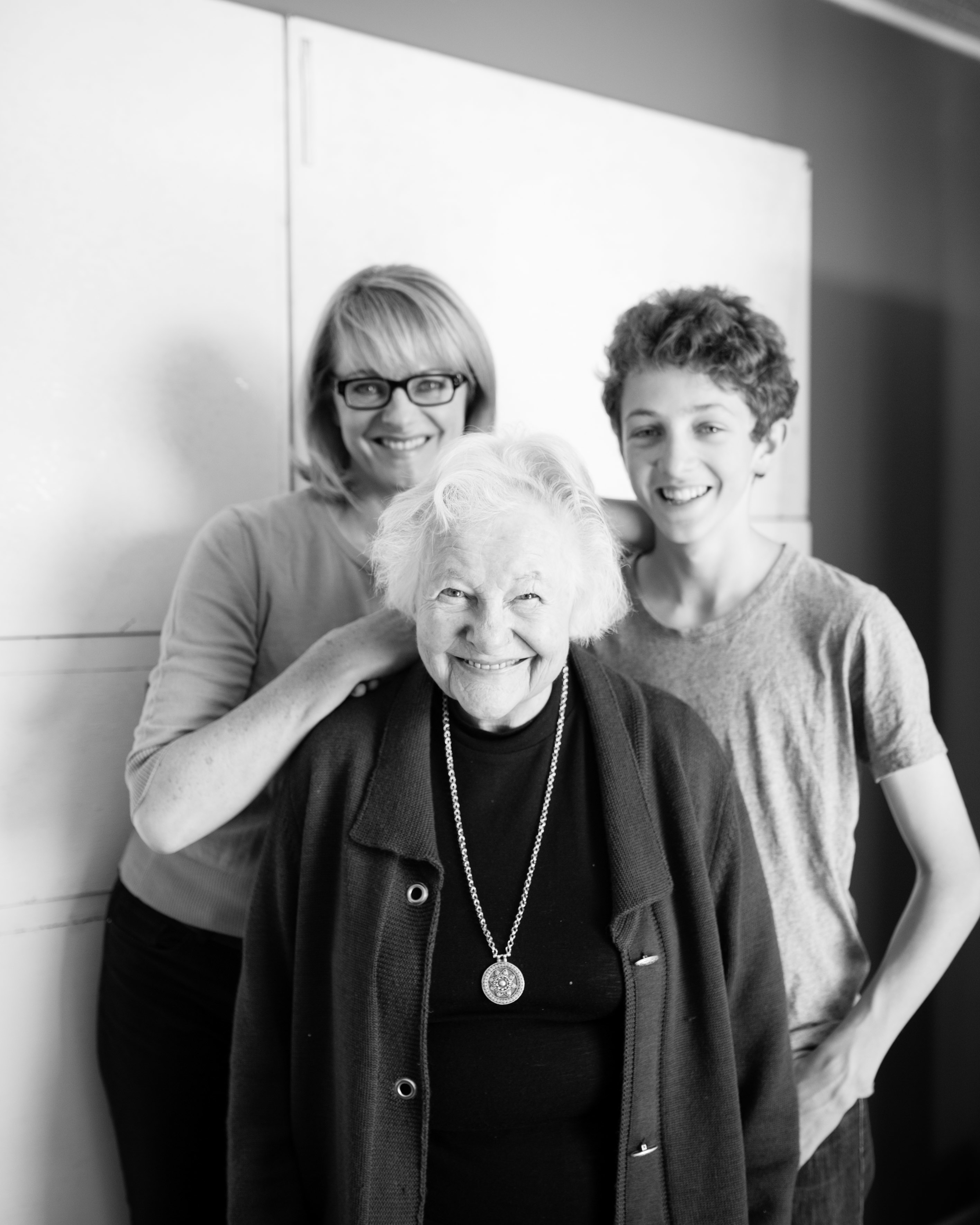
Now imagine if the prospect of this ‘holiday’ was not just for a fortnight but for the foreseeable future: 20 years or even more. Would your requirements stay the same?
Planning for the future, and in particular living arrangements, in retirement is a challenge facing thousands of New Zealanders every year. Wading through the paperwork, calculating finances and negotiating the complex landscape of the future to discover what is best for you can be tiring and confusing.
Age Concern has been supporting the senior community in Wellington for more than 60 years, focusing on issues such as hardship and health care. Robert Ross, acting chief executive for Age Concern New Zealand, says, “Our vision is that all older people are valued and live in an inclusive society. Unfortunately, New Zealand is not there yet. The key challenges that older people are currently facing are elder abuse and neglect, social isolation and loneliness, meeting the cost of healthy living, finding affordable age-friendly housing and receiving care that is delivered with dignity and respect.”
In this guide you will discover some of the options available for you or a loved one, in addition to first-hand experience and advice from seniors themselves.
Let’s make a list
So, you’re planning your holiday — you know what you like and you know you want:
- A pool (to allow you to finish that book you started a year ago)
- A 24-hour bar (to allow you to have an illicit midnight beverage)
- Shops and restaurants within walking distance (to sample the local cuisine and spend a week away from the kitchen)
- A bevvy of interesting activities (to allow you to at least consider base jumping or zip-lining)
But what would you want in the future? What means a lot to you? Age Concern recommends making a list of what you would like nearby, now and in the future:
- Family/whānau and friends
- Neighbours
- Services and facilities like shops, the library, your doctor
- Places and activities that are special to you: marae, church, gym, swimming pool, park, beach, bus, bridge club, sewing or book group
- Travel — bus stop or train (you may decide to stop driving)
- Mobility and accessibility — good footpaths and access for easy walking or a mobility scooter
- A garden or a vegetable patch — your own or a community effort
Age Concern also recommends taking a look at your current surroundings and being realistic about upkeep, maintenance and accessibility as you get older. Making a list of pros and cons can also be beneficial if you’re indecisive — take time to weigh things up practically.
[info]What should you consider when making this decision?
What capital do I have?
How much will I have for the future?
How much is allocated from the government?
How do I access this?
Am I in good health?
Do I want provisions set aside should something happen?
Am I close to my family?
Will they still be close by in the future?
Let’s look through the options
Retirement villages

Bill has been an active member of Grey Power for 19 years and lives in a retirement village in Auckland, where he and his wife Christine decided to move 14 years ago. He says: “Living in a retirement village has a great many benefits if you want to remain independent, yet have the peace of mind that comes from a village of like-minded people and the added benefits of a safe and secure setting. However, there are always a lot of important facts to consider when making this decision and most of the time it is around planning and finances.”
Bill concludes that his and Christine’s forward planning has afforded them the luxury of being one of the youngest couples within their retirement village. “Sometimes you can leave it too late and have neither the energy nor resources to live somewhere that ticks all the boxes. Planning is the key.”
Retirement villages come in various shapes and sizes. More often than not, you will buy a licence to occupy (which give you the right to live within the village but no ownership of any land or buildings). Essentially, when entering a village you’re purchasing the lifestyle, not investing in the bricks and mortar.
“The most important things I stress when offering advice on village retirement is, understand that there is no capital growth,” says Bill. “There is a weekly fee for the village and be smart with your savings. Living here has been great for us we are glad we made this choice.”
Additional benefits of living in a retirement village setting include extra-curricular activities that ensure you stay fit and healthy in addition to having fun and making friends. At Ryman Retirement Villages, which have more than 26 sites and 7,000 residents, the ‘villagers’ have the opportunity to take part in the Triple A (Ageless, Active, Aware) programme, currently being flexed by more than 2,500 men and women of all ages. Programme co-ordinator Nicki Brown based the plan on a study involving older participants. She says, “The truth is that you’re never too old to exercise — you’ve just got to choose the right way to do it.”
[info]Considerations:
- You pay upfront for a licence to occupy your unit, a percentage of which (up to 30 percent) is deducted immediately and is non-refundable.
- Retirement village units are not affected by housing market trends and values
- You will be required to pay weekly fees for the running costs of the village
- Always check the occupation right agreement or seek advice from someone who is specialised in this area (not all lawyers are)
- Read the Code of Resident’s Rights and retirement villages Code of Practice 2008 as well (org.nz/retirement-villages/legislation#s3). The Code of Practice 2008 sets out the rights and obligations of village operators and residents
- Retirement villages also offer a variety of packages (similar to holidays): independent living, supported independence and full care
THUMPS UP: Security and safety within the village; mini-bus or transport on site; community spirit and days out offered; maintenance is handled; choice of living options; privacy of your own home (great for couples)
THUMBS DOWN: a large upfront outlay (in the region of $200,000); 30 percent of outlay is deducted straight away and is non-refundable, so if you move, your capital is reduced; weekly fee on top of the initial costs
[/info]Staying put
If your house is your castle and your garden is paradise, the thought of upping sticks can be a daunting prospect and may cause more harm than good. Staying put is usually best for couples or individuals in relatively good health with family and friends nearby.
Susan and Les Meek have lived in their Kingston house for more than 38 years and have no intention of leaving any time soon. The couple, who have been married 42 years, have six children and two grandchildren who also live in Wellington with their parents.
The Meeks want to continue living with their chickens and ancient dog in the home and garden they have built over the years. Susan, 62, says, “The main thing is to remain busy and active; I certainly want to continue teaching and being an active participant within the community.”
She also says that a retirement village would be their last option. “That is not something we are interested in and is the last thing we would want. Staying in our own home, near our family and friends, is the most important part of our lives.”
[info]
Considerations:
- Can family members/neighbours/community projects help with garden or maintenance?
- Can you share your home to help with household expenses?
- Are you happy for the house to be adapted? A new shower or bath space, handrails and moving a bedroom to the ground floor may all be beneficial for the future
THUMBS UP: Friends, family and established community remains; familiar with surroundings; minimal outgoings if mortgage-free; no stress of moving
THUMBS DOWN: Home will probably need to be modified/adapted for mobility; more upkeep/maintenance as you get older
Shared accommodation/renting
Sharing or renting is always an option, no matter what your age. Tapping into social media via platforms like Facebook and sites like Trade Me, have made the scope for finding a new place to live wider than ever.
Abbeyfield is one of the pioneers in this area, offering an alternative way of living in your twilight (or sunrise, depending on your perspective) years. If you prefer a more integrated approach, Abbeyfield is great for people aged 55+ who want a ‘family’ type atmosphere, complete with communal dining and living — with the exception of a cook, who sources and prepares meals twice daily. Residents (typically up to 14 retirees) oversee important decisions within the house, even down to who rents alongside them.
A newbie to the rental market, Pamela Lundon, 58, has been living in Australia for the past ten years and has returned to Wellington to be nearer her family. She says, “Living on your own allows you to remain independent and continue living life at a pace you choose. I am lucky that I am fairly mobile and have two sons who help with things like car maintenance or repairs around the home.”
[info]
Considerations:
- Renting can be great if you’re independent and like your own company, not too good if you’re prone to feeling lonely or isolated. Shared accommodation may be a better option if you want a lively space — but remember, it is shared; being respectful, and patient is important.
THUMBS UP: Great for singletons or friends who want to share together, or for those on a budget; family-style inclusive approach to living
THUMBS DOWN: Not suitable for those who require care or have mobility issues; could potentially have a lack of privacy; no investment or return
[/info]
Living with family
Actor and director Miranda Harcourt says that a “common family culture” is the glue that binds her family unit together, weaving the lives of her husband, children and mother, theatre legend Dame Kate Harcourt, into one unique tapestry in Melrose.
“It was a really natural progression from Kate living in a large space by herself after my father [Peter] had died, and deciding that we would consider living together after the birth of my son Peter 15 years ago,” Harcourt relates.
“We are a very close-knit family and spend a great deal of time together; financially it made sense and we agreed it would be great to live together.”
Miranda explains that Dame Kate, 86, has a keen eye for real estate and was looking around when she found a house that she loved and would meet the needs of both parties. “We converted two garages at the base of the house with the help of an architect, and it was perfect.”
Almost 15 years on, the family lives in what Miranda describes as a commune: a home with like-minded individuals who speak the same language — the language of the creative arts. “Peter flats with Kate and she and Thomasin practise the piano together; it works wonderfully.”
The idyllic lifestyle has been captured even more so by an English country-garden, cultivated and tendered to by a green-fingered Dame Kate. Dame Kate agrees enthusiastically, “I am never lonely or bored, and I am with my family yet have retained my independence. The importance of living like this is the relationship with your family. You need to listen and talk to each other, and the key is tolerance on both sides.”
[info]Considerations:
- The needs and expectations of every family member should be considered
- What support network is available?
- Will the elderly family member live in an annexe or in a room within the house?
- How will the elderly family member integrate with younger people/children?
THUMBS UP: Great environment and family atmosphere; shares on costs and living expenses; safe and secure
THUMBS DOWN: Living with family can risk lack of privacy; suits like-minded members
Resources — for support and information:
eldernet.co.nz — home and housing information
seniornet.co.nz — learn more about technology
ageconcern.org.nz — the backbone of the senior community
greypower.co.nz — community and advice
nzaca.org.nz — New Zealand Aged Care Association
Quick facts:
- Home ownership is highest for the 70–74 age group — 77.5 percent own their home (source: Statistics New Zealand)
- From 1950 to 2010, the over-65 population has grown from 9 percent to 13 percent
- Retirement age population in Wellington*:
55–59 = 27,555
60–64 = 24,369
65–69 = 20,262
70–74 = 15,294
75–79 = 10,800
80–84 = 8,382
85–89 =5,007
90–94 = 2,007
95–99 = 456
100+ = 60
*Source: 2013 Census
[/warning]







